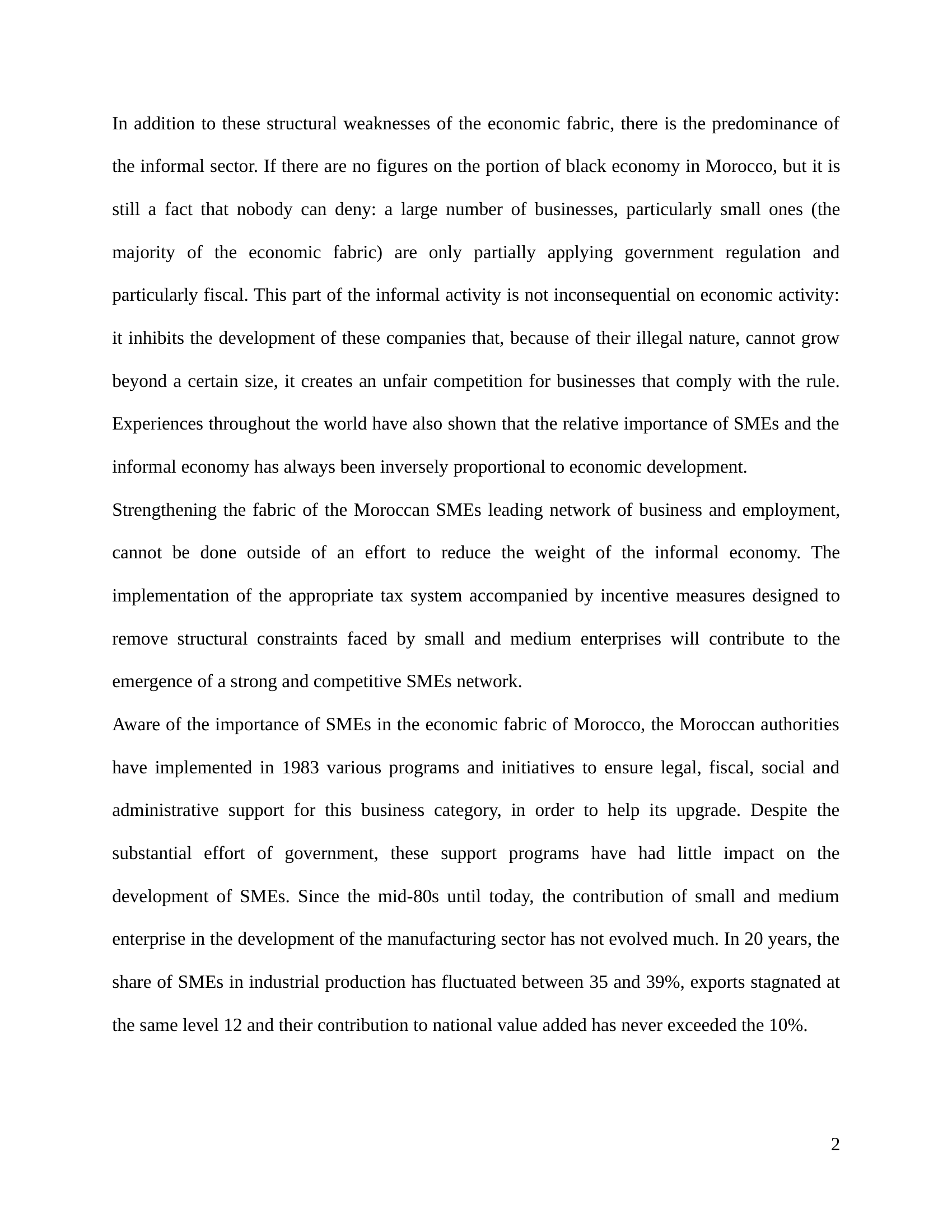SMEs in Morocco
Publié le 12/11/2012

Extrait du document
«
In addition to these structural weaknesses of the economic fabric, there is the predominance of
the informal sector.
If there are no figures on the portion of black economy in Morocco, but it is
still a fact that nobody can deny: a large number of businesses, particularly small ones (the
majority of the economic fabric) are only partially applying government regulation and
particularly fiscal.
This part of the informal activity is not inconsequential on economic activity:
it inhibits the development of these companies that, because of their illegal nature, cannot grow
beyond a certain size, it creates an unfair competition for businesses that comply with the rule.
Experiences throughout the world have also shown that the relative importance of SMEs and the
informal economy has always been inversely proportional to economic development.
Strengthening the fabric of the Moroccan SMEs leading network of business and employment,
cannot be done outside of an effort to reduce the weight of the informal economy.
The
implementation of the appropriate tax system accompanied by incentive measures designed to
remove structural constraints faced by small and medium enterprises will contribute to the
emergence of a strong and competitive SMEs network.
Aware of the importance of SMEs in the economic fabric of Morocco, the Moroccan authorities
have implemented in 1983 various programs and initiatives to ensure legal, fiscal, social and
administrative support for this business category, in order to help its upgrade.
Despite the
substantial effort of government, these support programs have had little impact on the
development of SMEs.
Since the mid-80s until today, the contribution of small and medium
enterprise in the development of the manufacturing sector has not evolved much.
In 20 years, the
share of SMEs in industrial production has fluctuated between 35 and 39%, exports stagnated at
the same level 12 and their contribution to national value added has never exceeded the 10%.
2.
»
↓↓↓ APERÇU DU DOCUMENT ↓↓↓
Liens utiles
- White Paper: SMEs in Morocco
- Casablanca (motion picture) Casablanca (motion picture), popular drama about two star-crossed lovers in occupied French Morocco during World War II (1939-1945).
- Morocco Facts and Figures.
- MOROCCO

































